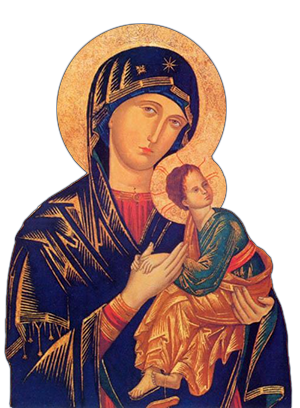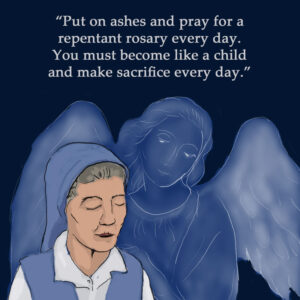Father Higgins: The USCCB Meeting, Anti-Catholic Trigger?
At the conclusion of their June (virtual) meeting this month the Catholic bishops of the United States voted for a draft of a document to be made regarding the reception of the Holy Eucharist vis à vis those Catholic public figures who oppose Catholic moral teaching particularly on abortion. This draft-document would then be further discussed at their November meeting. The content of the meeting has been well-reported: the divergent views among the bishops documented, the words of the individual bishops’ who weighed in now a matter of record. Also a matter of record is the letter sent by the Pope’s representative asking the US House of Bishops not to go down the road which they did.
Catholics, following all of this news coverage, can form their own judgments on what is being discussed and on what the merits and flaws might be to the differing positions under debate. That the bishops are discussing these matters, however, is in itself unremarkable…or should be.
And yet it is the fact of their discussion itself which has triggered such a torrent of vituperative speech in the American public square over recent days. How DARE they! It is as if the Catholic bishops of the US, by discussing anything beyond the confines of how to say the Rosary better or the rules governing movable feasts, have dealt an intolerable insult to all decent Americans. Little, if any, of the response engages with the arguments of the Bishops’ majority on the draft document vote. Instead, we see a free-fire zone of derision and vulgar abuse directed both at the Office of Catholic Bishops and at individual Catholic bishops themselves. We ought not to mistake this for what it really is: it is an outburst of good old American Anti-Catholicism.
In his 2003 book The New Anti-Catholicism: The Last Acceptable Prejudice, History and Religious Studies Professor Philip Jenkins wrote:
Catholics and Catholicism are at the receiving end of a great deal of startling vituperation in contemporary America, although generally those responsible never think of themselves as bigots … In 2002, the furor over child sexual abuse by Catholic clergy provoked a public outpouring of anti-Church and anti-Catholic vituperation on a scale not witnessed in this country since the 1920s. Reasonable and justified critiques of misconduct by particular Church authorities segued effortlessly into grotesque attacks on the Catholic Church as an institution, together with sweeping denunciations of Catholic faith and practice.
What is striking about these [anti-Catholic] comments is not any individual phrase or accusation, but the completely casual way in which these views are stated, as if any normal person should be expected to share these beliefs … Complaints about anti-Catholicism are likely to provoke countercharges of oversensitivity, much as complaints about racism or anti-Semitism did in bygone generations. As Andrew Greely writes, anti-Catholicism is so insidious ‘precisely because it is not acknowledged, not recognized, not explicitly and self-consciously rejected.’ The attitudes are so ingrained as to be invisible.
I would offer further that American Anti-Catholicism has been shaped historically by two tropes, epitomized by two best-selling books of their day. The tropes are, that the Catholic Church is the locus of all sexual perversion hiding under an appearance of virtue, and, that the Catholic Church is the very place of un-freedom, and thus, a danger to all human freedom. The books are The Awful Disclosures of Maria Monk (1836) and American Freedom and Catholic Power (1948) by Paul Blanshard.
In August, 1834, the convent of the Ursuline Sisters in Charlestown, Massachusetts was burned to the ground by a Protestant mob. This remains one of the most shocking and violent episodes of Anti-Catholicism in U.S. History. The trigger for the mob was the rumor that women were being held there against their will.
The following year an ex-nun at the Ursulines, who had returned to Protestantism, published a sensational “tell-all” Six Months in a Convent. Even at the time, it was considered to be an inventive, unreliable account but nonetheless it was a best-seller. Launching off of this gothic novel, in 1836 a much more lurid and juicy “memoir” appeared, The Awful Disclosures of Maria Monk, which purported to be a truthful account of a nun held prisoner in a Montreal convent where all kinds of perverted behaviors took place. This book has long-since been disproven as an arrant hoax, but it fed the appetite of popular Anti-Catholicism in 19th Century America. What the Protocols of the Elders of Zion is for inveterate Anti-Semites, the Awful Disclosures of Maria Monk is for inveterate Anti-Catholics.
Maria Monk was part of the genre of 19th Century American Protestant anti-Catholic invective. Paul Blanshard’s American Freedom and Catholic Power, which first appeared in 1948, was a secular critique of Catholicism. Its charge was that faithful Catholics simply could not be trusted to hold high public office because they had dual loyalties to their religious dogma and their foreign leader the Pope. This bestselling book appeared in its Second Edition in 1958. It was the Blanshard charge which hovered over John F. Kennedy’s Presidential Campaign in 1960 and influenced the candidate’s famous speech in Houston to Protestant Pastors, wherein he took himself to the very brink of repudiating his own religion in order to re-assure his audience that he could be safely entrusted with the constitutional office of the US Presidency.
I think we are seeing something of the spirit of both Maria Monkism and Blanshardism in this particular outraged reaction to the US Bishops’ internal debate. The toxins of American Anti-Catholicism are very much unleashed. A further wrinkle is to be found in the voices of lapsed Catholics and what I’ll call “conflicted” Catholics (that is, Catholics who are half-in-love, half-in-hate with their own Church.) Whether they have the self-awareness to realize it or not, they are feeding Anti-Catholicism. Why do they think it a small thing to gin up the hatreds towards their own community (or at least the community of their origins)? This is not right.
The Bishops of the United States may or may not produce a document in November which is good or effective. The Faithful certainly have the liberty to respectfully critique it when they do. But the Faithful should also show loyalty to their Church and to their Bishops, and not take part in any way in the sin of Anti-Catholicism, even when, and especially when, they hold themselves to be faithful Catholics.
Father Jeremiah Higgins is pastor of Mary Immaculate of Lourdes in Newton, MA, a two-form parish of the Archdiocese of Boston



